
Life sciences writer Susan Milius has been writing about botany, zoology and ecology for Science News since the last millennium. She worked at diverse publications before breaking into science writing and editing. After stints on the staffs of The Scientist, Science, International Wildlife and United Press International, she joined Science News. Three of Susan's articles have been selected to appear in editions of The Best American Science Writing.

Trustworthy journalism comes at a price.
Scientists and journalists share a core belief in questioning, observing and verifying to reach the truth. Science News reports on crucial research and discovery across science disciplines. We need your financial support to make it happen – every contribution makes a difference.
All Stories by Susan Milius
-
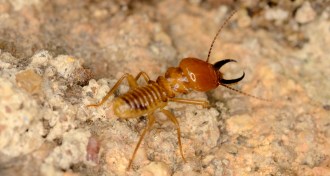 Animals
AnimalsTermite soldiers locate battles with vibrational clues
To locate invasions, termite soldiers listen for millisecond-long delays in vibrational distress signals sent out by other soldiers.
-
 Earth
EarthBird’s-eye views of the globe highlight avian trouble spots
Recent maps reveal trouble spots for the world’s imperiled birds.
-
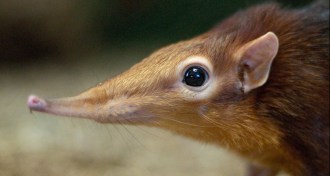 Animals
AnimalsElephant shrews are, oddly, related to actual elephants
A new species in the group is the smallest yet, with adults smaller than a newborn kitten.
-
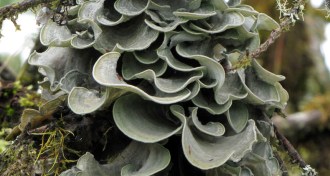 Life
LifeOne lichen is actually 126 species and counting
One supposedly well-known tropical lichen could really be several hundred kinds.
-
 Life
LifeAnimal sex lives exposed in ‘Nature’s Nether Regions’
What the sex lives of bugs, birds, and beasts tell us about evolution, biodiversity, and ourselves.
-
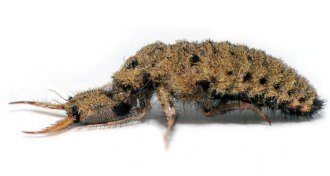 Animals
AnimalsAnt lions hunt despite sealed lips
Ant lions are ferocious predators, but some of them don’t have a mouth. At least not in the usual sense.
-
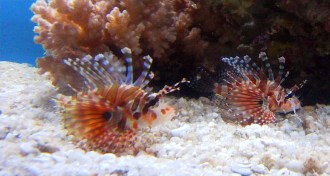 Animals
AnimalsLionfish dance can recruit partner for hunting
Slow but superb predators recruit pals for cooperative hunting, often striking in what looks like well-mannered turn taking.
-
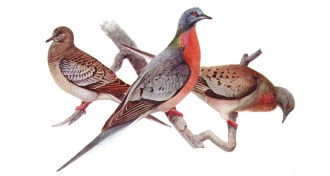 Animals
AnimalsPassenger pigeon population had booms and busts
DNA says the birds recovered from hard times — until people came along.
-
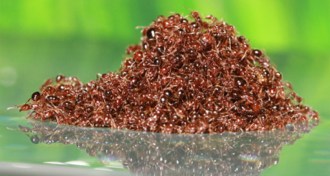 Animals
AnimalsIn emergencies, fire ants get lots of grips to form rafts
First look inside fire ant architecture shows how lots of leg grips assemble rafts, bridges and balls.
-
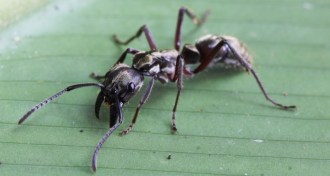 Animals
AnimalsSwimming evolved several times in treetop ants
Certain ants living in tropical forest canopies turn out to be fine swimmers.
-
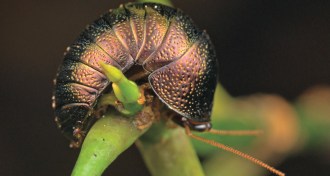 Animals
AnimalsLook beyond pest species to find beauty in cockroaches
A few pest species give the group a bad name, but exotic roaches include an amazing diversity of colors and lifestyles.
-
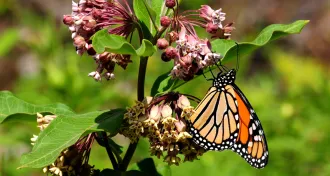 Animals
AnimalsWinter road salting reshapes next summer’s butterflies
Winter road salt treatments boost sodium in roadside plants and alter development for monarch butterflies.